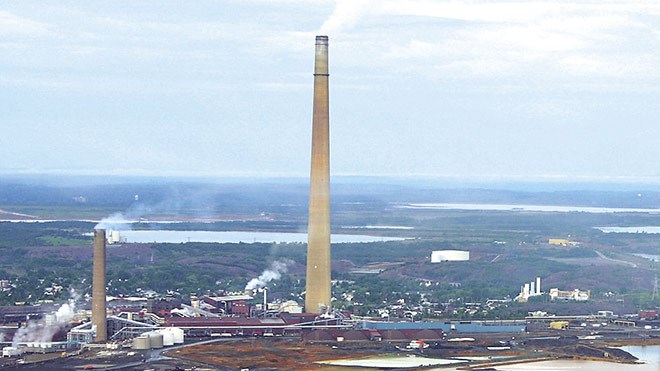Laurentian commerce professor Jean-Charles Cachon said the low Canadian dollar, which stood at US$0.86 Tuesday afternoon, should give the Steelworkers more bargaining power when it comes to salaries.
The lower Canadian dollar decreases Vale's operational costs in Sudbury, Cachon said.
“As workers are paid in Canadian dollars, any weakening of the Canadian dollar is to the advantage of Canadians,” he said.
“It's becoming a seller's market in terms of the job market,” Cachon said. “There are less and less people waiting to work for the mining industry. They (Vale) are probably going to have to pay a premium for employees in the next few years.”
Cachon said he expects the Canadian dollar to stay well below parity as long as oil prices remain low.
But while the low dollar might give workers more negotiating room, Cachon said he does not expect Vale to give in without a fight.
“I think they're going to be extremely tough in their negotiations,” he said.
After the third quarter of 2014, which ended Oct. 30, Vale posted a $1.4 billion loss, and its shares fell to a five-year low.
Vale took the financial hit due to low iron ore prices – the miner's primary business.
Cachon said the Chinese have stockpiled iron ore, driving down demand and prices.
“At this moment Vale is struggling financially,” he said.
Vale's base metals division has remained profitable, and to keep it that way the company will fight to keep its costs in Sudbury as low as possible, Cachon said.
To infuse some much-needed cash into company coffers Vale, CEO Murilo Ferreira told investors in early December the company might sell 30 to 40 per cent of its base metals division, which could be valued anywhere from $28 billion to $35 billion.
Capital raised from the sale would help support the company's other projects, as commodity prices fall.
In a press conference Dec. 10, Kelly Strong, Vale's vice-president of Ontario and U.K. Operations, said news Vale could open its base metals division to an initial public offering, should not impact discussions at the bargaining table.
But one factor that could impact negotiations is the price of nickel.
While nickel was US$7.3 per pound Tuesday afternoon, many analysts agree it could approach US$15 per pound in 2015.
Indonesia, the world's largest nickel producer, has banned exports of the base metal for 11 months.
The country has 11 processing plants scheduled for construction, so it can get more value out of the nickel it digs out of the ground.
Raymond Goldie, a senior mining analyst with Salman Partners, said the Indonesian government has shown no signs it plans to lift its nickel export ban anytime soon.
The ban will decrease the worldwide nickel supply, which should drive prices up.
And a higher nickel price, Goldie said, should favour Vale in discussions with the United Steelworkers.
Nickel at closer to US$15 per pound, said Goldie, will mean Vale will be less dependent on its Sudbury operations, since its base metal operations elsewhere – in New Caledonia, Thompson, Manitoba, Indonesia and Brazil – would become more profitable.
If Sudbury becomes less important to the company, it gives the Steelworkers one less bargaining chip, Goldie said.
But Vale's Kelly Strong said it's too early to speculate what the price of nickel will look like next summer.
Join Sudbury.com+
- Messages
- Post a Listing
- Your Listings
- Your Profile
- Your Subscriptions
- Your Likes
- Your Business
- Support Local News
- Payment History
Sudbury.com+ members
Already a +member?
Not a +member?
Sign up for a Sudbury.com+ account for instant access to upcoming contests, local offers, auctions and so much more.
